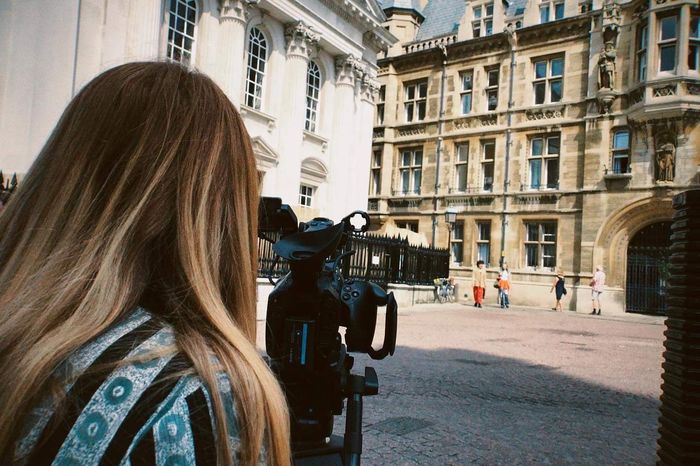Film & TV x Lifestyle: Film’s love affair with food
Gabriel Humphreys explores cinema’s obsession with food and cooking, and why the silver screen is the perfect medium for a love letter to cuisine

Scooters swarm across a busy intersection. A crossfade into a single-story house, then a cut to a large cauldron containing three large fish. Suddenly this tranquil scene is rudely punctuated as two hands plunge into frame and into the pool of water, grabbing the fish nearest the surface, then quickly dispatching and gutting it in a single sinuous motion. Moments later the fish has been filleted, dredged in flour and is being basted in oil and fried.
“Cooking can be a plot device, a symbol of greed or a method of control”
So begins Ang Lee’s 1994 film Eat Drink Man Woman — there is little doubt after the first thirty seconds that food will play a big role in this film. As we learn, this is a father preparing Sunday dinner for his three daughters. One of the daughters aspired to be a head chef but relented in the face of her father’s disapproval, and another works at a fast food chain. Food and cooking wrap themselves around each of the characters’ lives, forming a link between them while also being a source of conflict and a symbol of competing Taiwanese and Western cultural influences. But above all, this feast, and more broadly food in this film, are offerings carefully prepared. They are the concrete manifestations of the care and affection this family feels for one another — even when they can’t vocalise or even acknowledge it out loud.
“Food is something that every human being engages with on some level every day”
Cuisine is entangled with the plot and characters of Lee’s film, and similarly food and the cinematic medium have a deeply enmeshed relationship. The cinematic medium has a unique virtue in being able to capture the truly multi-sensory nature of food — even photographs of the most energetic cooking contain only a frozen snapshot of dynamism, and as stunningly appetising as shots of completed dishes can be, they can feel drained of all life. Only film has the multimodal and transportive quality that offers us sumptuous visions of fat spitting from pans and glistening dishes so visceral that you could almost smell them.
And just as film is important in portraying the glory of food, so too is food vital to the filmic project. Even in films whose focus is not food or cooking, food can play a huge role. Food is something that every human being engages with on some level every day, be it through creation, consumption, or even conspicuous absence. This ubiquity and the polyvalent importance that we attribute to food makes its presence in films a powerful narrative and stylistic tool.
“Just like filmmaking, cooking and food are modes of communication”
Food can be the meeting of the grotesquely visceral and ordered, regulated civility; of high and low culture. It is also a powerful medium of its own through which to portray so much: culture, relationships, emotions all the way from fear and anger to passion and joy. Cooking can be a plot device, a symbol of greed or a method of control. The parallels between cooking and filmmaking abound — the almost rhythmic, dance-like creative process from nascent concept to fully realised project.
And food too is more than just an essential nutritional event — much like film, it is so much more than the assembly of its constituent parts. Editing, acting, directing, cinematography — all work in perfect concert like technique, ingredients, seasoning and plating. Just like filmmaking, cooking and food are modes of communication, they are a lens through which we can inhabit, however briefly, a human experience different from our own. When you look at it like that, it feels only right that food and film share such an intimate relationship.
 Features / Should I stay or should I go? Cambridge students and alumni reflect on how their memories stay with them15 December 2025
Features / Should I stay or should I go? Cambridge students and alumni reflect on how their memories stay with them15 December 2025 News / Dons warn PM about Vet School closure16 December 2025
News / Dons warn PM about Vet School closure16 December 2025 News / Cambridge study finds students learn better with notes than AI13 December 2025
News / Cambridge study finds students learn better with notes than AI13 December 2025 News / News In Brief: Michaelmas marriages, monogamous mammals, and messaging manipulation15 December 2025
News / News In Brief: Michaelmas marriages, monogamous mammals, and messaging manipulation15 December 2025 Comment / The magic of an eight-week term15 December 2025
Comment / The magic of an eight-week term15 December 2025











